Get in touch
Head office and Research Winery:
Marlborough Research Centre
85 Budge Street, Blenheim 7201
Grapevine Improvement Laboratory:
RFH Building, Engineering Drive
Lincoln University, Canterbury 7647
Head office and Research Winery:
Marlborough Research Centre
85 Budge Street, Blenheim 7201
Grapevine Improvement Laboratory:
RFH Building, Engineering Drive
Lincoln University, Canterbury 7647

New Zealand Winegrowers Research Centre Ltd, trading as Bragato Research Institute, is a wholly owned subsidiary of New Zealand Winegrowers Inc.
Marlborough Research Centre
85 Budge Street Blenheim 7201
Ross Wise MW is a viticulturist and winemaker previously based in British Columbia’s Okanagan Valley. He began his career in Hawke’s Bay, completing a Bachelor of Viticulture and Advanced Diploma in Wine Science at the Eastern Institute of Technology. Since then, Ross has worked in viticulture, winemaking, and consulting roles across many wine regions in New Zealand and Canada.
Most recently, he held the position of Director of Winemaking for Andrew Peller Limited, overseeing wine production at five BC wineries, and leading winemaking at the iconic Black Hills Estate Winery.
In 2020, Ross became Canada’s 7th Master of Wine. His MW Research Paper studied the potential implications of climate change on viticulture in the Okanagan Valley looking ahead to the 2050s.
He has been heavily involved with Canadian wine industry organisations over the last decade, with roles including administering research activities, leading knowledge and technology transfer programmes, and assisting in the establishment of a clean plant material network.
Matthew joined BRI’s Lincoln-based Grapevine Improvement team in early-2025. He comes from Waipara’s Greystone Wines where he was Cellar Master. Matthew has previously completed a Bachelor of Viticulture and Oenology at Lincoln University and worked vintages in Hunter Valley.
Renee has joined BRI as Executive Assistant, supporting the CEO, Board, committees, and Leadership team. She brings with her a diverse background, with experience in both support and leadership roles, primarily in the airline and tourism industries.
Sarah is BRI’s Finance Associate, bringing with her extensive expertise in accounting and financial management.
Sharon has joined the BRI team to establish a Programme Management Office to ensure the successful planning and delivery of research and strategic projects across BRI’s portfolio.
Vianney Segedin is the Communications Manager and is responsible for our communications including newsletters, website and media.
Seth is the Sustainability Research Leader and is responsible for identifying, developing, and managing research in these areas.
Seth was previously a Senior Scientist at AgResearch Farm Systems and Environment group. His PhD from the University of South Australia was focused on viticultural soil management issues across the Barossa Valley and McLaren Vale. Seth is an adjunct lecturer at Lincoln University and has expertise in soil physical health and how this influences soil health and water use.
Seth is excited to work closer with the viticultural industry across New Zealand and be a part of R&D activities that provide tangible and meaningful outcomes for the wine industry.
Yuichi joins us after over a decade of working and gaining experience in viticulture, most recently as Vineyard Manager of the Allan Scott Family vineyards. Yuichi’s mix of technical viticulture, practical vineyard operations management and tertiary qualifications make him a key member of the viticulture team. He assists with running trials and then helping communicate findings to members.
Greg Mann has been newly appointed as a Director of Bragato Research Institute. Greg is currently the General Manager of ArborGen, New Zealand’s largest supplier of improved genetics planting stock to the forestry sector. He is also a director of Scion, a Crown Research Institute specialising in research and innovation development for the forestry sector, and has previously been General Manager – Commercial at Plant & Food Research.
Given the common challenges and opportunities faced by the wine and forestry sectors, such as the need to increase the genetic diversity of elite varietal planting stock, impacts of climate change, the potential for automation and mechanisation in vineyards and forest tree nurseries, he will bring a unique perspective to Bragato Research Institute.
Greg has over 25 years of management experience in organisations that conduct research and develop and market valuable new products, services and technologies globally.
After completing a BCom/LLB (University of Otago, 1993) James initially got admitted as a Barrister and Solicitor (High Court of NZ, 1993) before starting work for Deloitte and practising as a Chartered Accountant (ICANZ, 1997) in NZ, Amsterdam and then London. This was followed by 5 years of consulting in London before returning to NZ to start work for Grape Vision Ltd, a vineyard development management and consultancy business owned by his father Robin.
He retrained by undertaking a Graduate Diploma in Viticulture and Oenology from Lincoln University and worked with his father in the company until he purchased it in 2009.
James was a director of Mt Difficulty Wines Ltd for sixteen years and a foundational director of the Season Solutions Cooperative (2008-16), helping grow the Co-op’s turnover from 120k to 23m during his tenure. Additionally, he has been on the Central Otago Winegrowers Association board since 2005, holding the position of Chair for 5 years. He was a member of the NZ Winegrowers Research Committee (2009-13) before being elected a director of the full board of NZ Winegrowers for 4 years, as well as a foundational board member of Bragato Research Institute.
James brings a strong entrepreneurial streak to any business he has worked on, consistently achieving significant profitable growth. He has experience governing multiple start-ups and dealing with an evolving operating environment, ensuring growth is balanced with process. A strategic thinker, James also can ensure this is resolved into actionable projects.
James is a grape grower based in Cromwell, where he runs Grape Vision, a vineyard development, management and consultancy business. Before being a grower, he was a chartered accountant working in New Zealand, the Netherlands, the United Kingdom and internationally.
He has extensive governance experience including:
He sought reelection onto the BRI Board as an Independent Director to ensure connectivity with the wine community and to continue to help the development of wine industry research in New Zealand.
Originally from the Stellenbosch wine region in South Africa, Darrell established BRI’s Lincoln-based Grapevine Improvement Laboratory in 2019. He now leads a brilliant team of scientists working to improve genetic traits associated with resilience, sustainability and profitability of winegrowing in New Zealand.
Darrell manages a variety of research projects ranging from the rehabilitation of New Zealand’s National Vine Collection to the development of non-GMO tools for regulating the expression of plant traits (e.g. in response to inter-seasonal climate variations). The largest of these, the Sauvignon Blanc Grapevine Improvement Programme, is a 7-year Ministry for Primary Industries/New Zealand Winegrowers partnership that is currently developing New Zealand’s own Sauvignon Blanc clones to increase the resilience of the New Zealand wine industry. Read more about the Programme here…
Fang has a rich academic background from China Agricultural University to Wageningen University. Armed with a BSc in agro-meteorology and an MSc in simulation and modelling of intercropping systems, Fang holds a PhD specializing in modelling yield gains within wheat-maize intercropping systems.
Fang’s primary focus at BRI involves creating a comprehensive industry research data catalogue. She intends to document existing research, ensuring researchers are well-informed about prior work, data, and access methods. Fang will lead initiatives to integrate this information into a structured database for cross-project analysis, coupled with developing data standards and protocols.
Beyond cataloguing, Fang oversees BRI’s data management systems, curating a wine industry research data repository for efficient sharing. Additionally, she provides statistical support, establishes data standards, manages data in line with international best practices, and ensures compliance with standards through ongoing staff support and training.
Solomon joined the BRI team in September 2022. Solomon coordinates the grapevine virus elimination project from the National Vine Collection as well as working on other grapevine improvement projects.
Originally from Nigeria, he has worked at Federal University in Nigeria as Lecturer. Solomon studied for his PhD in Biotechnology at the University of Canterbury, New Zealand, in 2019. His work focused on somaclonal mutation using the in vitro tissue culture technique to develop new clones or variants of plant lines with superior benefits, which could survive harsh changing environmental conditions.
Solomon will use this knowledge in the grapevine improvement project and other related projects. He is excited to be part of this world-class research institute for New Zealand’s wine industry.
Braden is the Knowledge Transfer and Engagement Leader and is responsible for leading the transfer of knowledge and engaging with our viticulture and winemaking communities.
Braden has a Bachelor in Wine Science and has been involved in an array of winemaking and viticultural roles over the last 20 years, including owning and operating his own vineyard and wine brand in Martinborough.
Braden aims to facilitate a two-way engagement with growers and winemakers to ensure industry research requirements are fulfilled by the BRI. He is excited to work closely with the wine community in all regions to get the best benefit out of our research outcomes.
Contact: braden.crosby@bri.co.nz
Robert’s role as Assistant Research Winemaker is varied and covers the day-to-day operations, supporting administration, and responsibility for the safe and compliant running of the winery.
Robert holds a Bachelors of Viticulture & Winemaking, WSET Level 4 Diploma, and, outside of wine-related qualifications an MA (Hons) in Social Anthropology.
His previous work experience includes vineyard operations in the UK at various sites, and prior to starting at BRI he worked for Wither Hills, first in the cellar operations team and then in the laboratory.
Bhanu joined the grapevine improvement team at BRI in October 2022 as a Research Scientist working on the Sauvignon Blanc Grapevine Improvement project.
He is a distinguished biologist and passionate about understanding how crops perform under constantly changing environmental conditions and linking advanced molecular biology research from the lab to the field. He is excited to join BRI’s highly skilled and multidisciplinary team, whose aim is to understand plants’ natural evolution and contribute to developing resistant grapevines with novel traits.
Born and raised in a farming community on the southeast coast of India, Bhanu was always attracted to the agricultural sciences, developing a curiosity to find solutions for various farming challenges. He holds a PhD in microbiology, specialising in pathogen evolution and molecular plant-microbe interactions, from the University of Otago in collaboration with the James Hutton Institute, UK, and Plant and Food Research, NZ. He has also obtained a Master of Research in Plant Sciences from the University of Glasgow and an MSc in Biotechnology from the University of Madras.
For the past five years, he has worked closely with New Zealand Winegrowers on numerous projects, particularly on grapevine trunk diseases. He has previously worked in various research capacities at Plant and Food Research and Lincoln University.
Ellie joined the BRI team in October 2022 as Postdoctoral Researcher – Applied Epigenomics. Ellie works primarily on the molecular biology aspect of the Tuned Vines project.
Originally from Hawke’s Bay, and later Manawatu, she has studied her BSc, MSc, and PhD at Massey University and has a background in molecular genetics with a focus on plant-associated fungi/oomycetes.
Ellie has joined the BRI Grapevine Improvement team and is looking forward to applying her molecular knowledge and lab skills to the grapevine system.
Annabelle joined the Grapevine Improvement team in 2022, taking up the position of Bioinformatician. Her role explores genomic datasets to glean insights into grapevine biology.
Annabel completed her PhD in plant molecular genetics at the John Innes Centre, Norwich, UK. Since then she has applied genomics technologies to questions in clinical research, evolution and conservation.
As a bioinformatician at BRI she is characterising genetic and epigenetic diversity in new and existing grapevines to develop more resilient plants for the future.
Annabel also holds an Honorary Academic position in the School of Biological Sciences, University of Auckland.
Cen joined the Grapevine Improvement team at BRI in November 2022, as Postdoctoral Scientist – Grapevine Epigenomics. Cen primarily works on the Tuned Vines project to study epigenetics of grapevine in different climates or in response to stress.
Originally from Indonesia, Cen completed her PhD in human genetics at the University of Otago – Christchurch in 2020, focusing on the application of novel genomic technologies and bioinformatics. She has molecular genetics background from her previous roles in molecular diagnostic and clinical genetic laboratories.
She is looking forward to applying her molecular and bioinformatic skills to study the effect of different terroirs and environmental stress on epigenetics regulation of grapevine.
Amy joined the Grapevine Improvement team in April 2023 as the Laboratory Manager. Amy works across multiple projects in grapevine improvement and oversees laboratory administration.
Prior to joining Bragato Research Institute, she worked as a Postdoctoral Researcher at the University of Canterbury studying methanogen-inhibitory compounds.
Amy has a background in microbiology and molecular biology. She holds an MSc from the University of Canterbury and in 2021 completed her PhD at the University of Cambridge where she studied gene regulation in bacteria.
Amy is looking forward to applying her skills in molecular biology to the grapevine system and working in such a vibrant New Zealand industry.
Chris is a Viticulture Technical Specialist, focused on establishing BRI’s new commercial viticulture field trial unit. Chris leads client and industry-funded projects focused primarily on the evaluation of crop protection products, with responsibility for pricing, trial establishment and delivery through to reporting.
Chris has more than 30 years of experience in New Zealand’s wine industry, a science degree in viticulture from Charles Stuart University, and runs his own viticulture consultancy business. Chris is a Blenheim local and owns a small vineyard, which he farms organically.
Paul has a PhD in Agronomy and Viticulture at Lincoln University. His research was to characterise and quantify the pruning decisions made by an expert human pruner, which in turn will be used to train Artificial intelligence (AI) systems in cane pruning, thus contributing to alleviating manual labour in vineyards. His research also investigated the effect of changing node loads on the grapevine vegetative and reproductive growth.
Paul holds a master’s degree in Agronomy from the University of Queensland (Australia) as well as a bachelor’s degree (Honours) in Agronomy from his home country, Cameroon. He has over a decade of experience in agriculture advising and research management in a range of crops including banana, barley and grapevine.
Paul’s role at BRI is to conceive and deliver applied research projects in cooperation with winegrowers, BRI staff, and researchers from partner institutions. Complementing this, he also takes a lead in extension – working with winegrowers and scientists to ensure that new knowledge is accessible to viticulturists and winemakers, and that this knowledge is employed to benefit the winegrowing businesses. This is a unique opportunity for him he says to use his experience in research and extension for the benefit of New Zealand grape growers and the wine industry.
Ngarita is BRI’s Research Winemaker. She is responsible for the running of the Research Winery, as well as conducting our winery research trials each year.
Well-known on the Marlborough Research Centre campus, Ngarita joins us from NMIT where she was the wine science tutor. She also runs a WSET course provider, The New Zealand Academy of Wine and Spirits.
After completing a double major in Microbiology and Zoology at Otago University, Ngarita spent a year at Lincoln University studying for the Post Graduate Diploma in Viticulture and Oenology. After a number of vintages in New Zealand and Australia, the UK became home for 6 years. There Ngarita was the wine buyer for St Johns College, Cambridge University and worked for the Wine and Spirit Education Trust (WSET) educating on wine as well as managing the research and program development projects.
On return to New Zealand Ngarita became involved again in winemaking in the greater Auckland region and Central Otago before most recently lecturing at NMIT in the wine science program. Ngarita also runs her own business teaching WSET courses, is a WSET Diploma holder and is a certified WSET Educator. In her spare time, she can be found hanging out with her 8-year-old boy, playing cricket and hiking and camping at the many great spots around Marlborough and Tasman.
Sarah Rowley Adams is the Communications Manager and is responsible for our communications including newsletters, website and media.
She previously worked at New Zealand Winegrowers as the Communications and Digital Advisor, where she led the digital communications, social media strategy and website.
Sarah holds a Bachelor of Arts with honours and has seven years of communications and content experience at well-known New Zealand export brands including Yealands Wine Group and Trilogy Natural Skincare. She is passionate about digital storytelling and helping brands communicate, educate, and connect with audiences.
Katie is our Office Manager based in Marlborough. She is responsible for running the day-to-day operations of the office as well as managing our accounts and events.
Katie has 5+ years in Office Management & Administration as well as previous background in the Fitness Industry.
Jacquie is the General Manager – Research & Innovation. She leads the Research and Extension teams and shapes BRI’s research strategy.
Jacquie was previously the Science Director and Chief Scientist at Overseer, and has held science leadership roles with BRANZ, Weltec and Whitireia and Malaghan Institute.
She has a PhD in Chemistry and Physiology from the University of Otago. She holds two occasional roles, as a contract lecturer at Victoria University of Wellington and the Deputy Chair of the National Animal Ethics Advisory Committee at the Ministry of Primary Industries.
Jacquie is excited by BRI’s stage of development and looks forward to bringing her wealth of experience to deliver research outcomes for the New Zealand wine industry.
Jeffrey Clarke, previously General Manager Advocacy & General Counsel at New Zealand Winegrowers, was appointed in June 2021. Mr Clarke has worked for NZ Winegrowers since 2014 and been involved with BRI since its inception. His work as general legal counsel included the original contracts to establish BRI, as well as ongoing advocacy and legal support.
Mr Clarke also represented the New Zealand wine industry on international wine bodies such as the OIV and World Wine Trade Group.
“I’m thrilled by the opportunity to help lead BRI at this exciting stage of its growth. We have an opportunity to consolidate our great start with exciting new programmes, deepening our relationships with the research community to deliver meaningful impact to winegrowers throughout New Zealand,” said Mr Clarke.
Jacqueline joins BRI as Programme Coordinator for our Sauvignon Blanc Grapevine Improvement Programme 2.0.
Jacqueline has a passion for viticulture and the wine industry, with over 10 years of experience in Marlborough, in various leadership positions including managing operational teams.
Jacqueline brings skills to the team in project management, financial planning and organisation and a keen drive to cultivate relationships with our industry and programme stakeholders.
Mark retired as Managing Director of BMW Group New Zealand in 2012.
He has nearly 30 years automotive industry and management experience, working in both New Zealand and Asia for international companies Volvo and the BMW Group, where he held a number of senior executive roles. During this time, the BMW Group more than trebled its retail sales numbers, and became market leader worldwide with improvements in both shareholder returns and a strong profit orientation.
Since 2012, Mark has applied his skills as a Professional Director, performing non-executive Director and/or Chair roles, in a diverse range of organisations, covering Local Government; Central Government, Commercial SME’s and the NfP sectors. A number of these roles are retail related and small to medium sized family businesses; so similar in some respects to the New Zealand wine industry.
Mark tends to come at things with a customer centric viewpoint, but with strong profit, shareholder and triple bottom line orientation; and has successfully implemented the strategic changes necessary to embed these where necessary. He always seek to make a positive difference – be it for the company, the shareholders and the employees.

The Pinot Noir Programme is a research programme led by the Bragato Research Institute and co-funded by the Ministry of Business, Innovation & Employment (MBIE) through its Endeavour Programme. The Endeavour Funds are for long-term, scientific excellence-derived research programmes and are aimed at increasing the competitiveness of New Zealand industries.
The programme will tackle the yield-quality detachment associated with Pinot Noir production through four interlinked research areas:
For more information on the Pinot Noir Programme please click here and you will be taken to the Members login area of the NZW website.
UC Davis collaboration to determine factors that affect colour in Pinot Noir wines when grapes are harvested at lower than target berry soluble solids
Plant and Food Research (C Grose)
The project will investigate the relative impacts of juice and pomace on the sensory properties and phenolic (especially anthocyanin) composition of Pinot Noir wines as grape ripening advances. Factors that contribute to poor colour in Pinot Noir wines when grapes are harvested at lower than target berry soluble solids will be determined and reported to industry. The international collaboration with UC Davis will generate new knowledge for the development of commercially suitable colour in Pinot Noir wine to support the growing New Zealand Pinot Noir market.
The role of microbes in regional Pinot Noir quality and style
University of Auckland (M Goddard)
The objectives of this project are to characterise the microbial communities and populations associated with Pinot Noir in three wine growing regions in NZ and to investigate if these communities and populations have a bearing on wine quality. During the 2018 harvest, samples of soil and bark were taken from the vineyards and fruit was harvested and spontaneously fermented.

‘Lighter Wines’, a research programme led by New Zealand Winegrowers and co-funded by the Ministry for Primary Industries’ Primary Growth Partnership (PGP), is designed to position New Zealand as the world’s top producer of premium lower alcohol and lower calorie wines. The seven-year programme (formerly known as ‘Lifestyle Wines’) started in March 2014 and aims to capitalise on market-led opportunities, using approaches developed from applied research to naturally produce lighter wines. Research is conducted in the main areas within the programme
For more information on the Lighter Wines Programme please click here and you will be taken to the Members login area of the NZW website. You can also find out more at the NZ Lighter Wines website.
Shoot trimming effects on Pinot Noir vine leaf area to fruit weight ratio, productivity and fruit composition
Lincoln University (A Parker)
The objectives of this project are to characterise how shoot trimming and its timing affects Pinot Noir vine performance at three different sites and how it affects Pinot Noir fruit ripening and composition. The project also aims to measure the relative impacts of shoot trimming and its timing on the development of fruit sugar versus other wine quality-related components.
Low alcohol-reduced calorie wines using molecular sponges for sugar removal
Auckland University (B Fedrizzi)
The objectives of this project are the synthesis of monomers and their polymerisation to form different sponge candidates and the evaluation of the various sponge’s binding potential on different sugars to determine the most effective molecular sugar sponge.


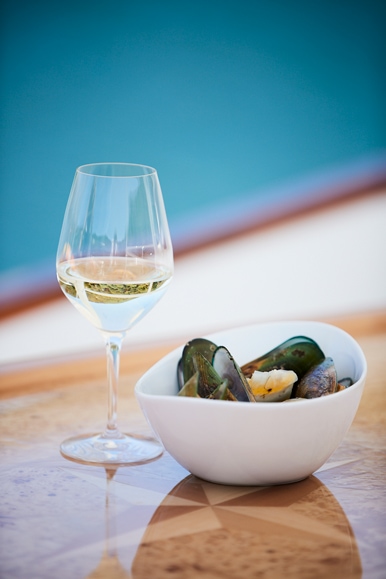



Click here to read more or if you have any questions – we would love to hear from you!

Climate change research has been identified as a high priority in the BRI Research Strategy. It contributes to our research theme ‘Protecting our Terroir, Provenance and Eco-systems’ and represents innovative long-term research.
In 2018 we commenced a Climate Change Adaptation research programme. Our aim is to identify and understand the possible impacts of climate change on grape and wine production in NZ, and develop a toolbox of adaptation strategies to manage the impact of that change.
Our Climate Change Adaptation Research Programme is comprised of 3 phases.
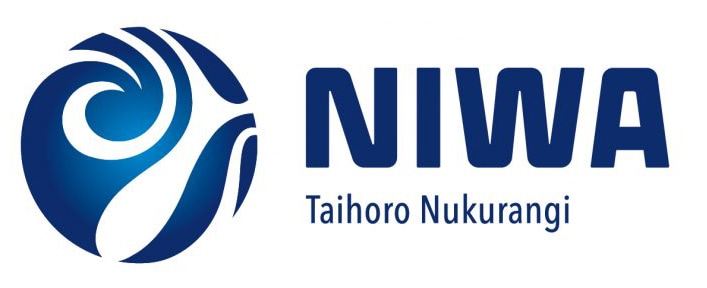
In 2018, BRI commissioned the National Institute of Water and Atmospheric Research (NIWA) to model climate change projections for the 9 wine regions of NZ.
Projections were based on 2 time horizons – 2040 and 2090 – and 2 emissions scenarios. 15 different variables were modelled, from temperature and Growing Degree Days (GDD) to rainfall, humidity, frosts, Potential evapotranspiration deficit (PED) and soil moisture deficit, amongst others. The 5km granularity of the data will enable projections of key variables to be made at a sub-regional scale.
Log-on to the members site and click here to access climate change projections for each wine region:
https://www.nzwine.com/members/grow/vineyard-resources/climate-change/regional-reports-and-presentations/
The aim of Phase 2 is to identify and analyse the potential impacts of climate change on grape and wine production in NZ. The output is a new climate change research programme based on:
In February 2019, BRI contracted Dr Amber Parker, Senior Lecturer in Viticulture at Lincoln University, to design this research programme.
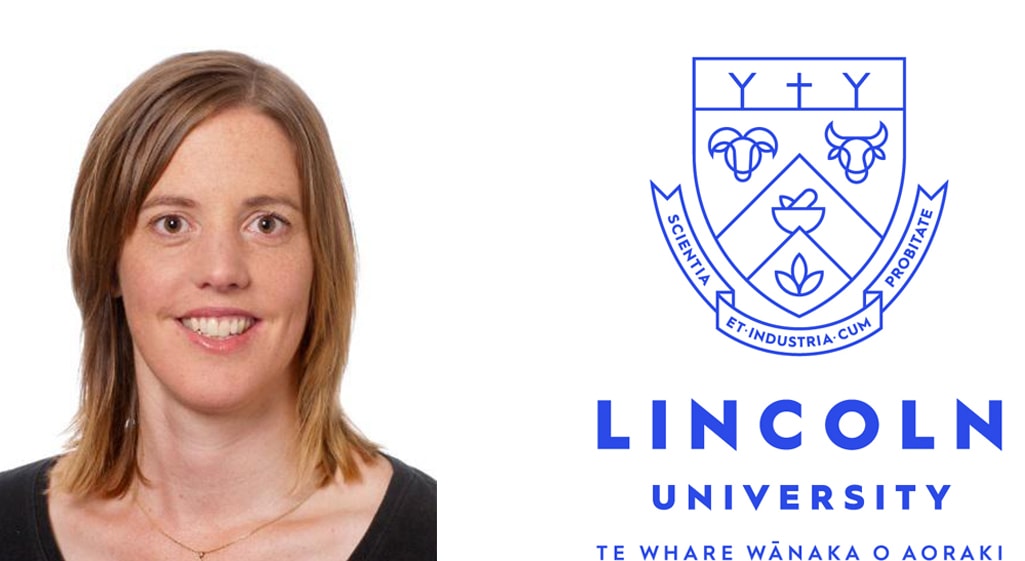
Dr Amber Parker
BSc (Hons) (University of Canterbury), MSc (ESA, France), PhD (Lincoln)
Senior Lecturer in Viticulture, Lincoln University
Amber’s areas of research are:
She is involved in developing phenological observational methods, testing and developing new approaches in phenological modelling for the grapevine, and characterising phenology of varieties and of winegrowing regions. She is also involved in ongoing research investigating the effect of modifying the leaf area to fruit weight ratio on the time of phenological events, vine performance, berry composition and fruit synchrony during ripening. Recent research has looked into understanding impact and adaptations for viticulture in the context of climate change.
Based on potential impacts understood from Phase 2, Phase 3 of the programme will build a set of adaptation tools for members to use to mitigate the risks and secure opportunities posed by changing climatic conditions. These tools will cover short, medium and long term strategies.
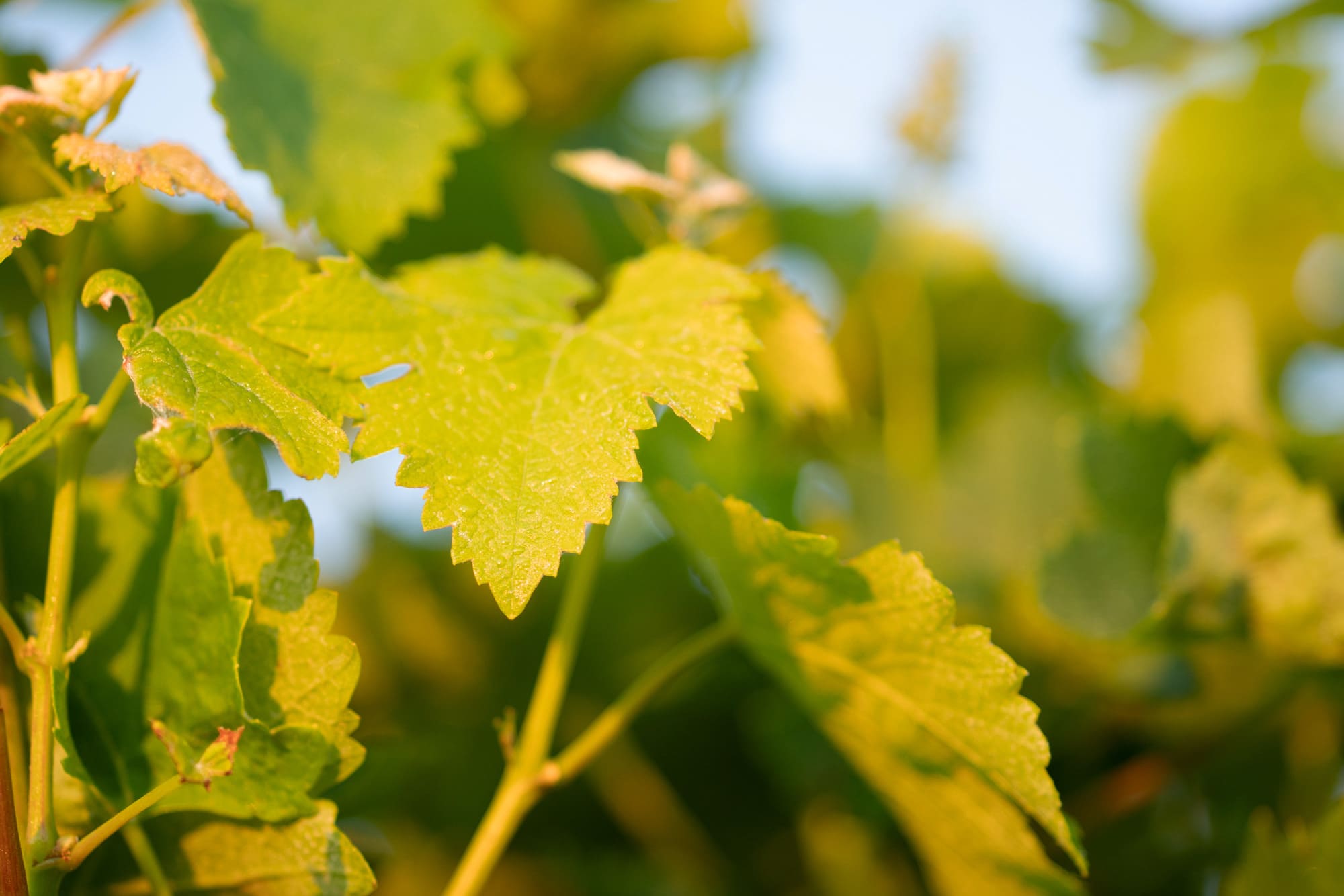
An important part of this research programme is building climate change collaborations, both within NZ and abroad, as well as identifying funding opportunities and partnerships for future research.

In 2018 we hosted seminars from visiting French climatologists who work with the European project LIFE ADVICLIM (ADaptation to VIticulture under CLIMate change).
We have also hosted scientists from the Australian Wine Research Institute (AWRI) to speak about climate change adaptation at our annual Bragato conference.
Copies of these presentations can be found on the Members site by clicking here.
In 2019 we also signed up as a partner to a new collaboration between France (CNRS/University of Rennes 2) and New Zealand (University of Canterbury). This is a 5-year project called “VinAdapt” (Scénarios à haute résolution d’adaptation des agrosystèmes au changement climatique : application à la viticulture). We believe that significant benefits will be gained by bringing together researchers from France and New Zealand to help develop mitigation and adaptation tools to ensure the future sustainability of New Zealand’s grape and wine production.

Hervé Quénol
Researcher at CNRS/University of Rennes
Want to know more?
For any queries on our climate change research programme or to submit Expressions Of Interest, please contact info@bri.co.nz
Simon’s course to the wine industry was guided by his background in finance and investment banking. In 2007 he took position with Boston Consulting Group, New Zealand where he developed US growth strategies for two major Australasian wine brands, assisted in the organizational redesign of the US distribution arm of a global wines and spirits company and designed an opportunity identification framework across four geographies for a global wines and spirits company. Since then he has worked as Managing Director of Mumm Napa and joined Constellation Brands New Zealand as Managing Director in May 2016, after he was promoted from SVP Strategy and Development for Constellation Brands in San Francisco.
An Auckland native, Simon was a professional athlete with an illustrious field hockey career. He has 217 senior caps for New Zealand and has led teams across New Zealand, Australia, France and the UK, including the Olympic Games in 2004 and two world cups in 1998 and 2002.
Dr Campbell has a Doctor of Philosophy (PhD) in ecology from The University of Sheffield. He is a recipient of the 2017 Prime Minister’s Science Prize, 2017 Horticulture New Zealand Industry Service Award and 2016 Royal Society of New Zealand Thomson Medal for outstanding leadership of agricultural and horticultural science.
Transforming the NZ grape and wine industry through research, innovation and extension
Delivering world-leading research outcomes from grape to glass
Research to support the sustainable and diversified value growth of NZ wine.
Research to protect and enhance the competitive position and reputation of NZ wine.
The Bragato Research Institute was established with MBIE funding as the first Regional Research Institute (RRI). The RRI initiative was a government programme created in 2015 to establish new, independently governed, private or private not-for-profit Regional Research Institutes with a purpose to:
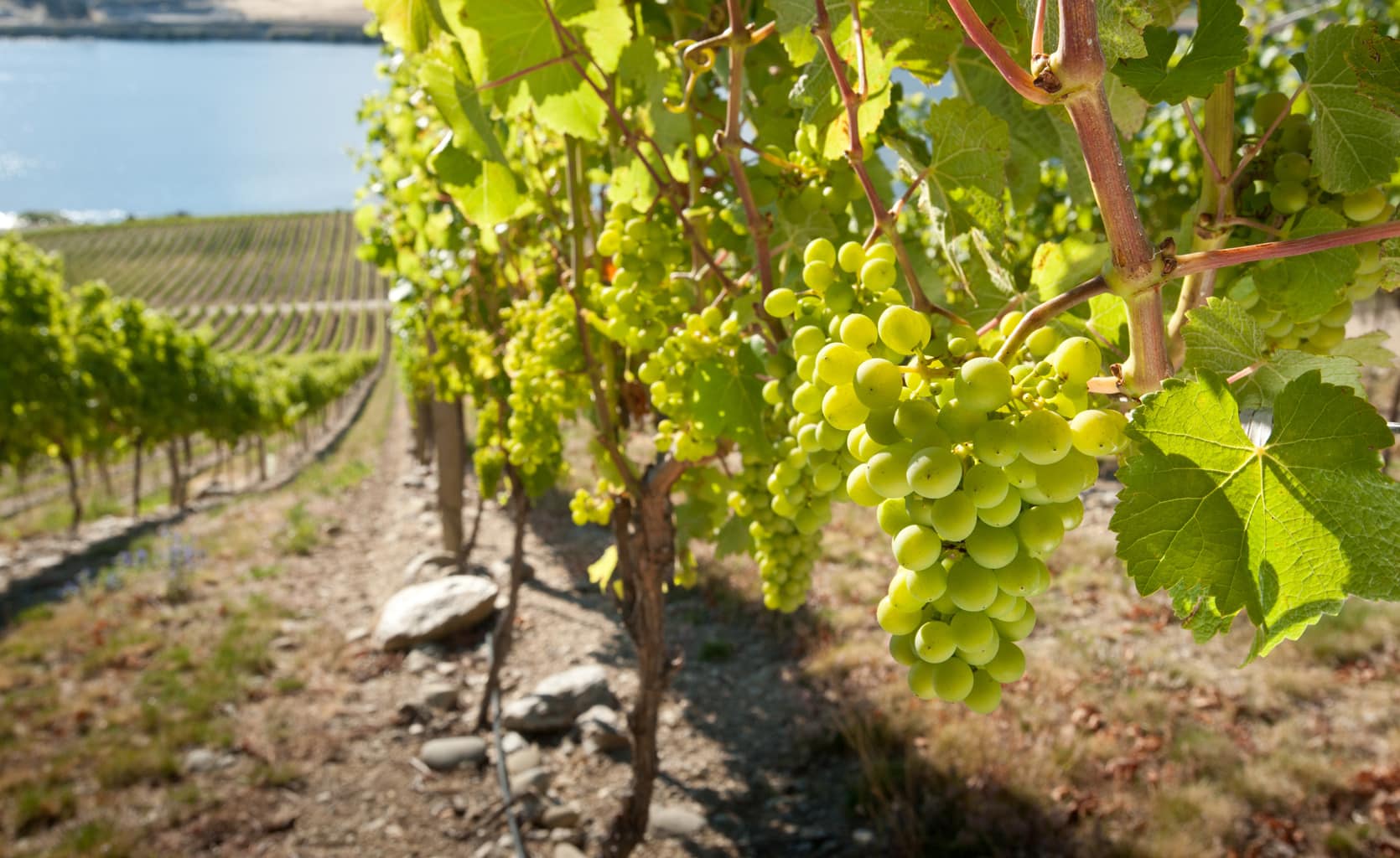
Vineyard Ecosystems is a seven year research programme led by New Zealand Winegrowers (NZW) and co-funded by the Ministry of Business, Innovation & Employment (MBIE) through its Science and Innovation Partnership programme. The programme was born out of the following hypothesis: the vineyard biota and the ecosystem services they deliver are significantly altered by vineyard practices. Thus, vineyard practices can be designed to enhance vineyard longevity, soil health, and vine performance.
The programme represents a shift in the way we look at vineyards, moving away from “firefighting” (issue-by-issue) based research, where pathologists and plant physiologists look at improving ways to kill or control individual pathogens (such as botrytis, trunk fungi, powdery mildew), to a more integrated understanding of the ecology of the vineyard as a whole.
Under two fundamentally different management regimes (‘Contemporary’ and ‘Future’) this programme explores the impact that two distinct farming systems impart on the wider microbial and chemical environments in soils and in vines across 24 vineyards in two geographic locales. Three varieties are being studied with technologies like Next-Generation DNA Sequencing and Quantitative Polymerase Chain Reaction, among other advanced analytical methods. The results of this stock take are fed through into a Bayesian model where inferences are informed by evidence collecting that is consistent or inconsistent with the hypothesis, and thus, produce mathematical estimates in degrees of belief, or probabilities, among a complex web of variables that comprise the Vineyard Ecosystem Programme.
Optimising management of grapevine trunk diseases for vineyard longevity
The South Australian Research and Development Institute (SARDI) (M Sosnowski)
The objectives of this project are to optimise timing of wound protection treatments and to investigate the duration of pruning wound susceptibility. The project will also ascertain inoculum dispersal throughout the pruning season and survey vineyards to track progress of trunk disease.
Exploring the chemical space in Vineyard Ecosystems (VE) Programme juices and wines
University of Auckland (B Fedrizzi)
This project will provide an in depth characterisation of the VE juices chemical and wine composition and aims to understand the pressure applied by VE programme vineyard management regimes on grape and wine chemical composition.
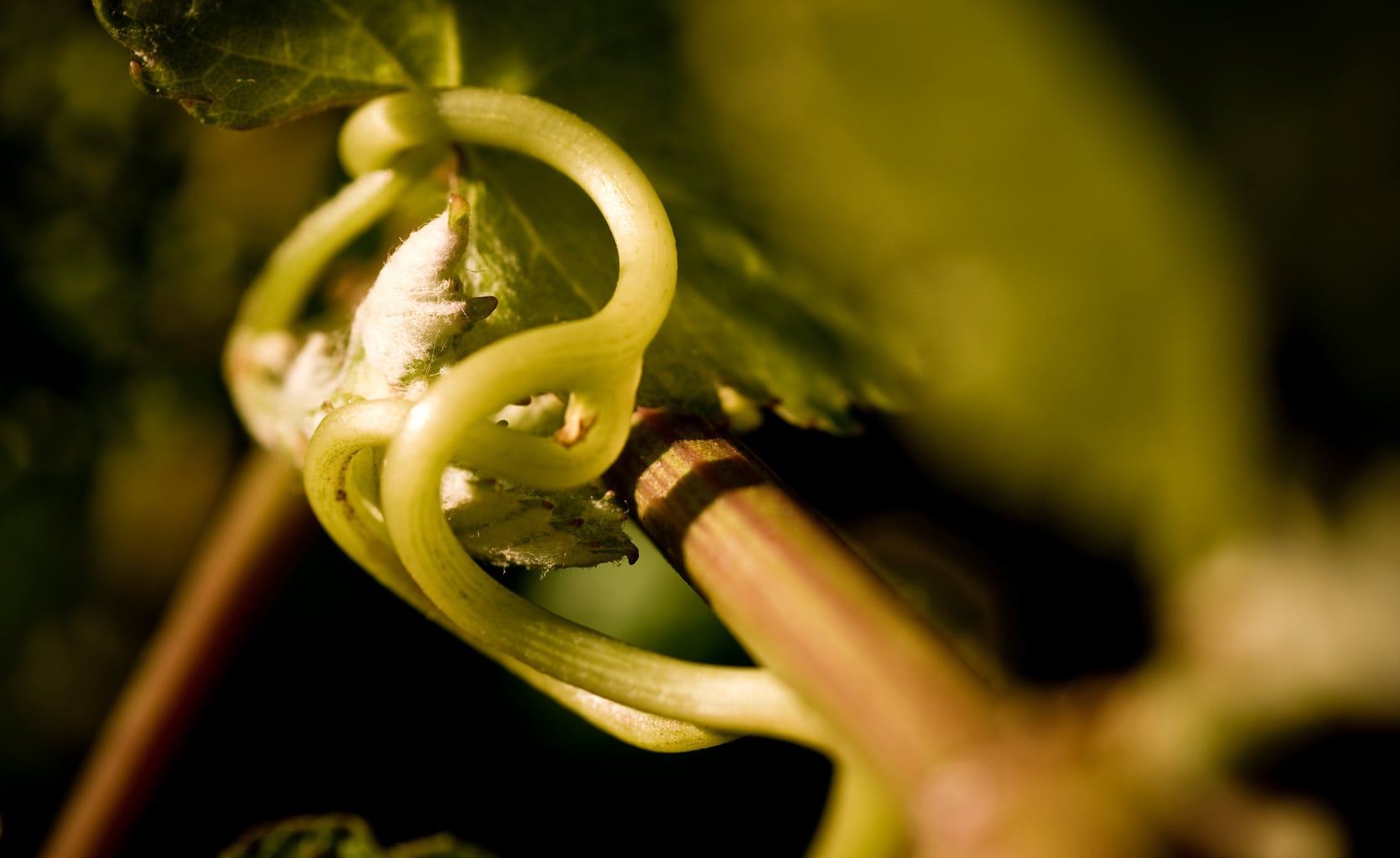



“Unlocking the Innovation Potential of Māori Knowledge, Resources and People” is the MBIE policy framework to guide research investment decisions. BRI embraces this policy and its underlying intent. To that end, we are committed to incorporating where appropriate, Māori knowledge, resources – including vineyards and wineries – and people into our research programmes in order to unlock the indigenous innovation potential and to assist New Zealanders to create a better future.
Specifically, we will:
Vision Mātauranga is based on principles of sustainability or ‘toitu’, ensuring a legacy for future generations through acknowledgement of our heritage and provenance. Environmental sustainability is embodied in the concept of Papatūānuku or ‘land wellbeing’.
In the Māori world view, land gives birth to all things, including humankind, and provides the physical and spiritual basis for life. Papatūānuku, the land, is a powerful mother earth figure who gives many blessings to her children.
We have set a research foundation of sustainability and are ensuring Vision Mātauranga is integral to all of our research aims.
Vision Mātauranga is at the core of our research theme ‘Protecting our Terroir, provenance and Eco-systems’. With a focus on provenance and sustainability, principles of Vision Mātauranga are building blocks of our research, rather than an adjunct to research.

